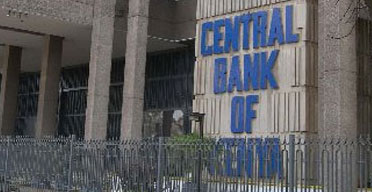NAIROBI, Kenya, May 13 – The mention of Credit Reference Bureaus (CRBs) immediately brings to mind loan defaulters and the banking sector. This is probably because from a broader perspective, CRBs have been known to share information with commercial banks about notorious loan defaulters.
But according to Sam Omukoko, the managing director at Metropol East Africa Limited, CRBs are not just about negative information.
Positive information in this case means that a CRB has the ability to build people’s credit history which commercial banks and other institutions can use to administer credit to an individual.
“For instance, an individual seeking a bank loan could easily qualify for the loan, on the basis of his good credit history. This is normally from information collected on how timely he pays his creditors such as utilities,” explains Mr Omukoko.
Mr Omukoko whose company has developed a credit-rating tool dubbed M-Score to enable lenders determine the credit-worthiness of borrowers explains that before administering credit to anyone, an institution can access one’s credit transaction profile and decide on whether or not extend credit.
From the local perspective, commercial banks are the biggest beneficiaries of their data.
He explains that the tool’s scores range from 200 to 900 points. An individual scoring over 400 points is said to have a good credit history while one who scores above 700 points is considered very attractive for credit.
On the other hand, those who fall below the 400 mark are ranked as poor in repaying loans.
Locally, repayment habits will be checked from institutions such as the Higher Education Loans Board (HELB), the Nairobi Water Company, Postal Corporation of Kenya as well as the Kenya Power and Lighting Company, with which Metropol is in the process of negotiating for partnerships to share information on how their customers pay their bills.
Already the CRB has signed a deal with HELB. This is the first time information relating to student loans will be incorporated into creating people’s credit files.
Mr Omukoko says an individual’s credit worthiness is not only relevant to commercial banks, but with time the information can be used by insurance, hotels and hospitals to administer credit.
While information from banks is considered confidential, that from utility companies does not enjoy such confidentiality.
CRB regulations
The CRB regulations which came to effect in February 1, 2009 provide for the licensing and establishment of credit bureau operations in the country making it mandatory for financial institutions to report non-performing loans, and provide for the protection of consumers by defining their rights.
According to Central Bank of Kenya, the regulations will guide the system of credit information sharing, and help identify and isolate serial loan defaulters, who account for the huge stock of non performing loans and with time enable banks to lower the price of credit facilities for borrowers that show a good credit profile.
Lauding the government for introducing the CRB regulations, the International Finance Corporation (IFC) Director, Eastern and Southern Africa, Jean Philippe Prosper recently noted that credit bureau operations are vital in building the confidence of the banking sector, and facilitating access to finance for small businesses.
On the other hand the East Africa Credit Bureau Association chairman, Wachira Ndege noted that the regulations strengthen earlier amendments to the Banking Act by making it mandatory for banks to share information, and allowing private credit bureau operators to formally apply for a license to provide their services to the banking sector.
In addition, the availability and use of credit bureau reports in credit decisions increases the quality of credit decisions and provide significant risk mitigation by also minimising fraud.
Despite the regulations, analysts explain that perception issues on positive information are yet to be dealt with. For instance, a bank might fail to reveal some of their ‘good’ customers fearing that their competitors will go after them.
Secondly there is also a debate on how relevant an individual’s ‘old’ information can be used in one’s credit profile. Most stakeholders seem to be of the opinion that CRBs should gather one’s information backdating it to the last three years which should in turn be used for a maximum of seven years.
Currently there are two CRBs; Metropol East Africa located at Hazina Towers and the CRB Center, in Westlands.



































